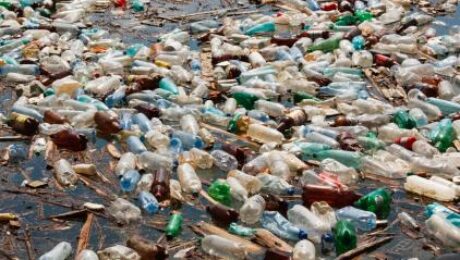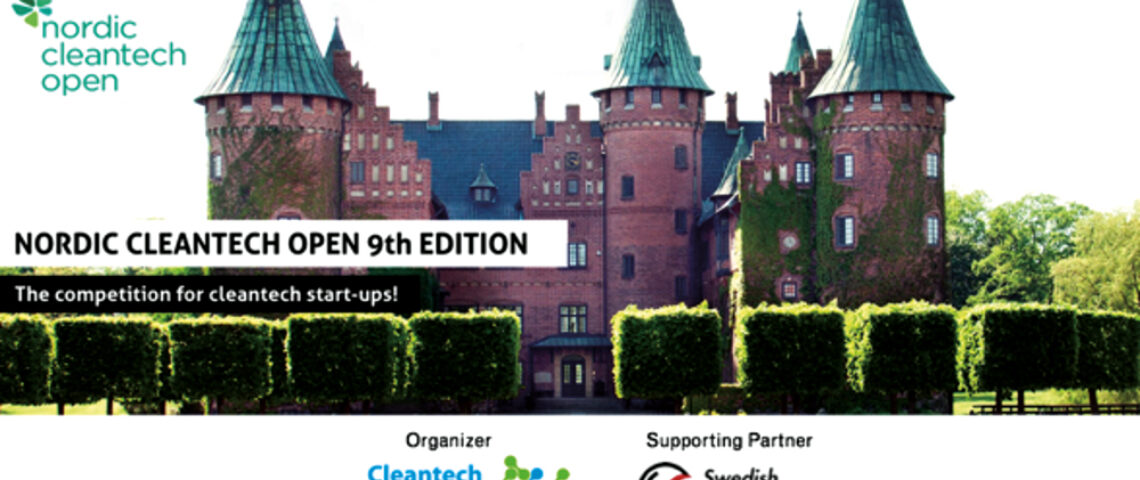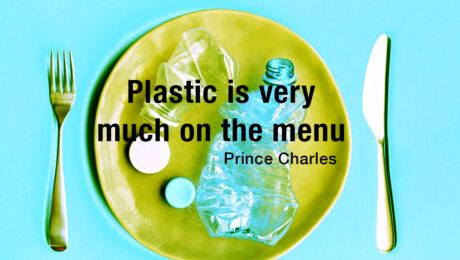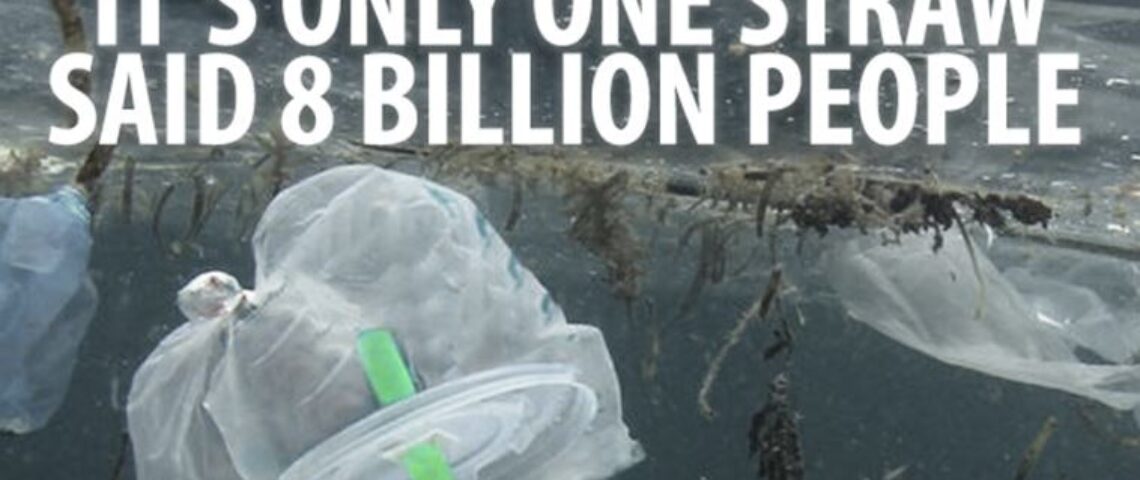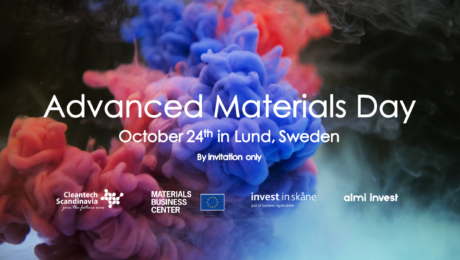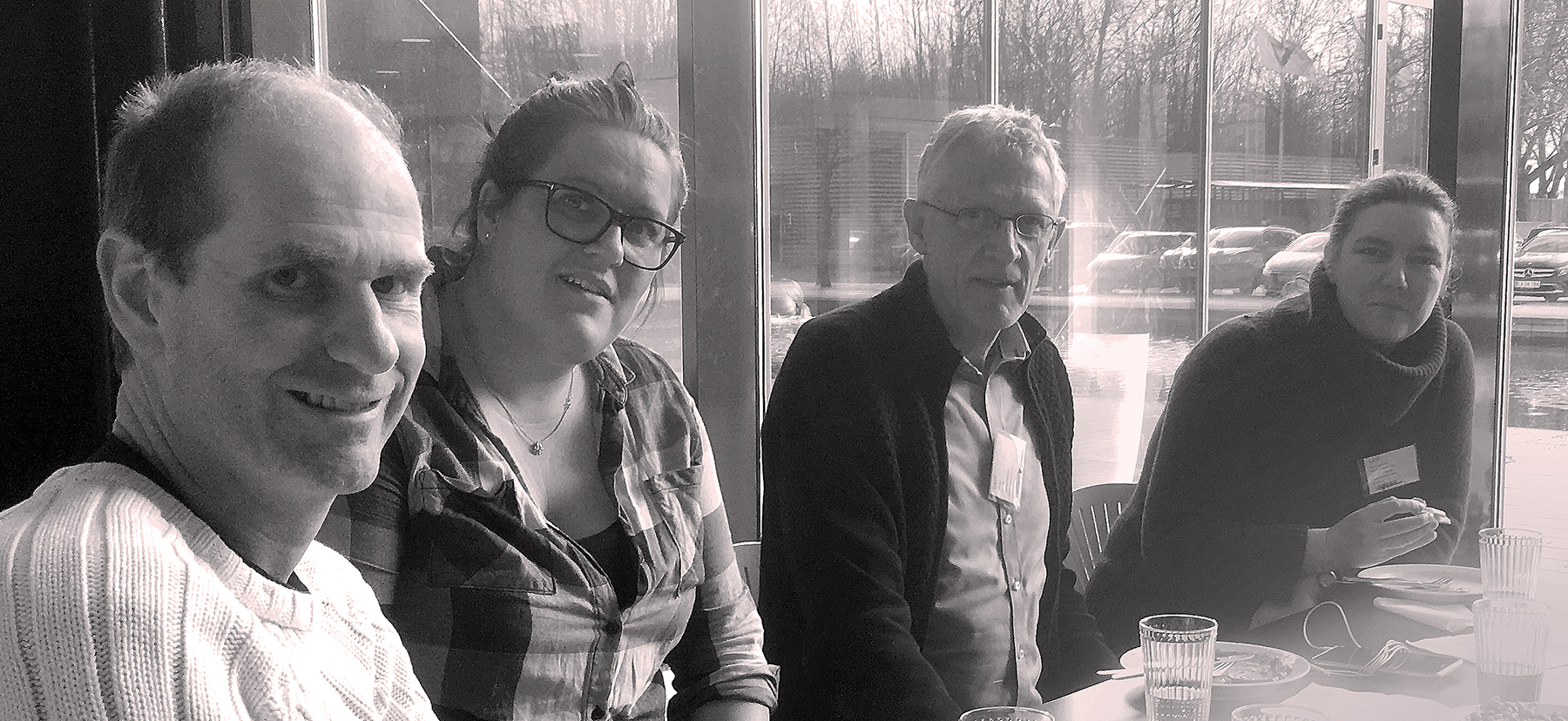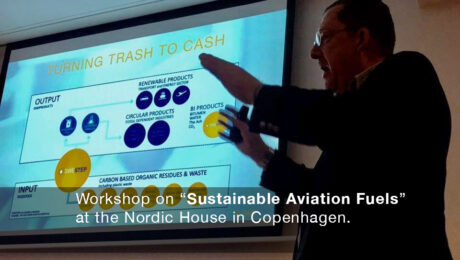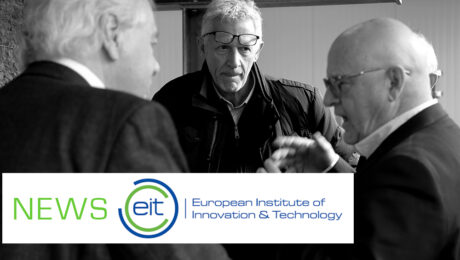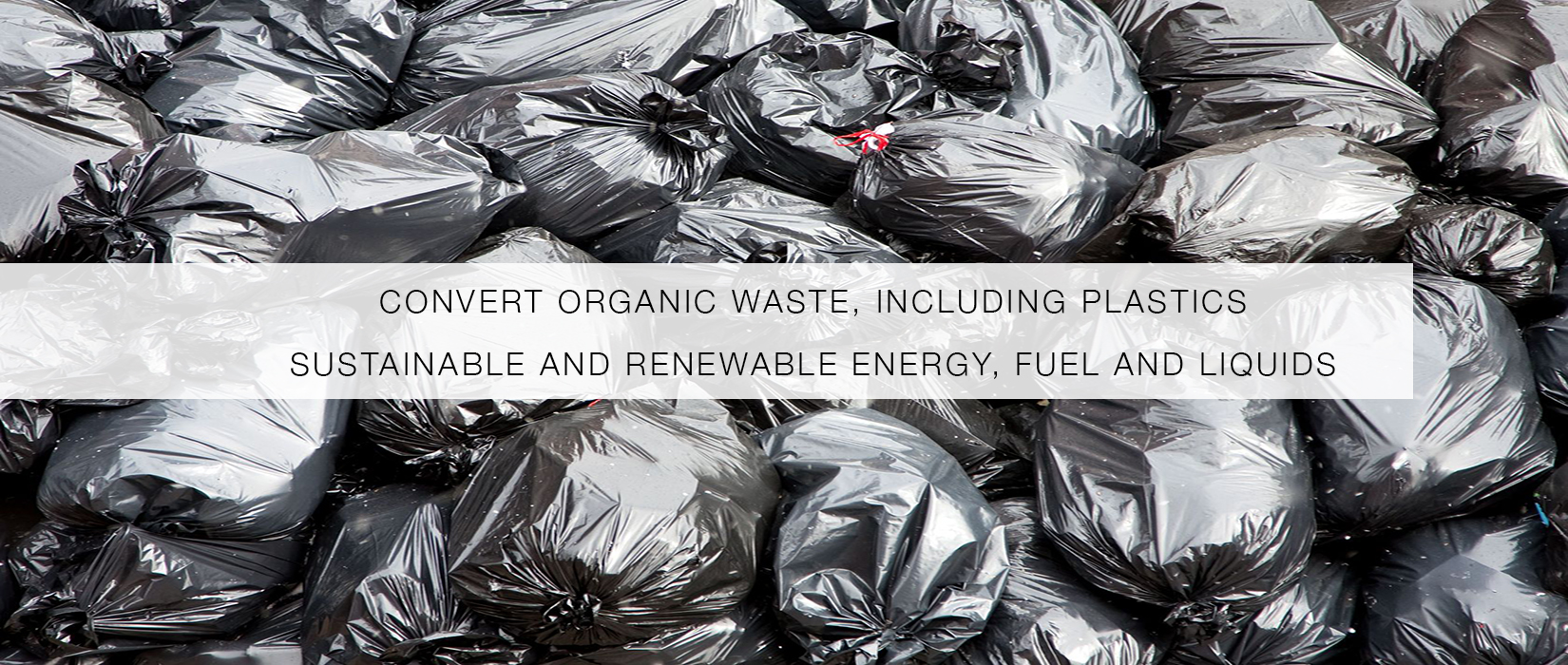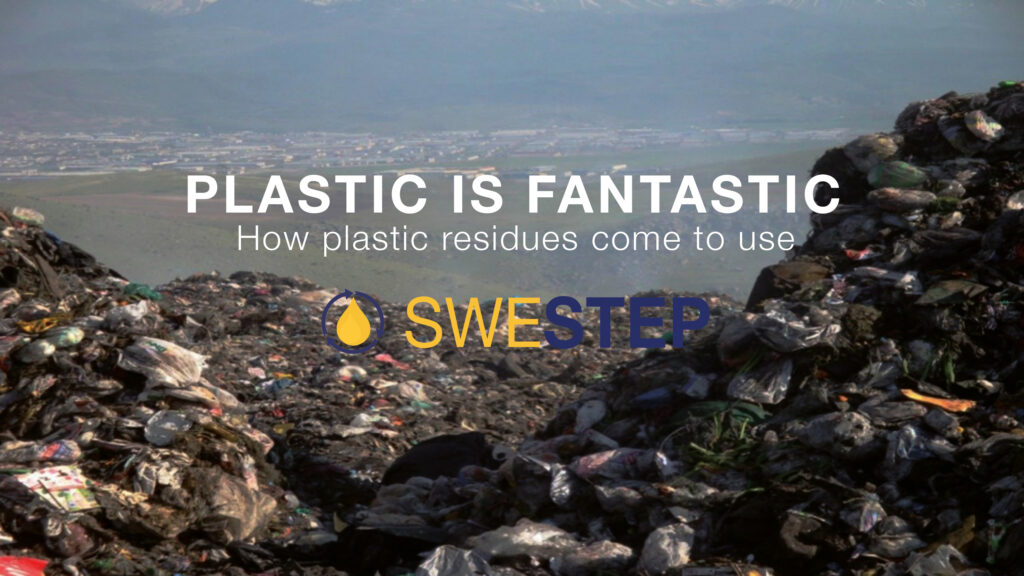
Plastic is Fantastic…
If made Circular and Sustainable with clear rules, laws and requirements about where/how it must be recycled
Today, most of all plastic waste goes to incineration and only a minor part is mechanically recycled. In addition, mechanical material recycling gives plastics a lower quality than the original.
Therefore, it is important to highlight feedstock recycling as a justifiable and profitable alternative for industry to produce green plastic products with guaranteed quality that meet the sustainability and environmental requirements.
Swestep’s CC Process is an efficient method for plastic recycling, the waste can be broken down at molecular level and deliver an oil product that can be refined into performance chemicals and/or new optional plastic products that meets the industry quality requirements.
– Another advantage of Swestep’s technology is that it also allows a gradual phase-out of fossil dependence.
Plastic waste recycling is poised to be the most important and transformative trend in the petrochemicals industry during the coming decade. Replacing plastic with other materials is not practical. When considering all aspects of the product lifecycle, plastics have a much lower environmental cost than their alternative materials.
So, while opportunities exist to reduce per capita plastic consumption, the solution to plastic waste must include the ongoing use of plastics for their superior material properties.
The end products are renewable fuels, energy and/or a chemical raw material (in liquid form) that can be processed into performance chemicals and new materials for all fossil-dependent industries.
Important to emphasize is that Swestep’s patented CC process (Catalytic Conversion Process) mimic natures decay process, but in contrast to that it takes nature millions of years Swestep’s solution do it under 6 minutes.
The technology is a combined feedstock-, chemical-, and mechanical recycling process that can recycle all hydrocarbon-based waste and residues. (Including contaminated waste, end of life products and flame retardant material)
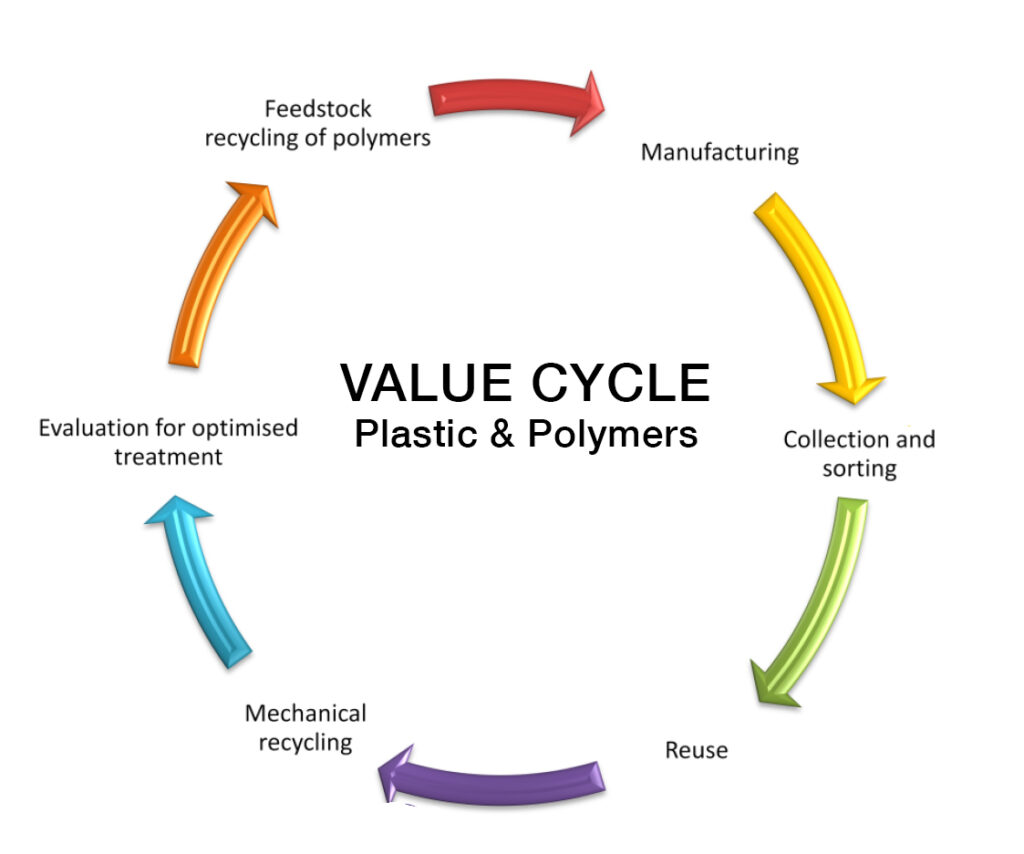
Priority is given to circularity, and therefore it is graded in the following order;
1. Reuse, 2. Mechanical Recycling, 3. Feedstock Recycling. However, all solutions have their pros and cons. – Quality requirements, handling, sorting, cost, time, profitability and environmental impact.
INFORMATION – The CC process is NOT an incineration technology – There are no chimneys; Thanks to that the production process runs under 300°C there are no cancerogenic (Furans, dioxins…) emissions produced.
Time to take the next step
Time for change
Swestep – All residues come to use
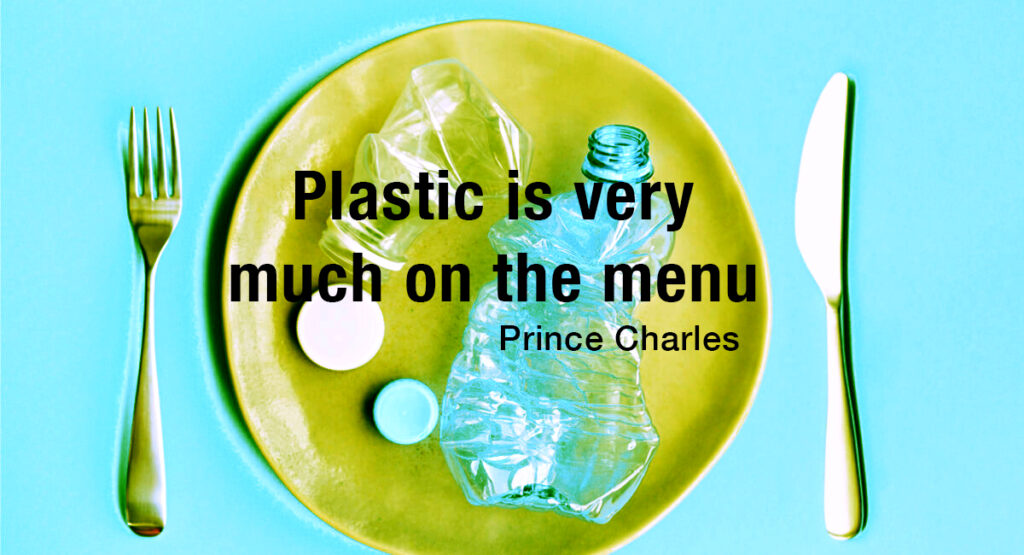
Plastic in our environment and food
Microplastics come from many sources: synthetic clothing fibres, dust from tyres, road paints, and the breakdown of larger items. Orb Media’s recent investigation has brought the issue of microplastics in the environment into sharp focus. The analysis of tap water samples from around the world found that a high proportion of drinking water is contaminated with microscopic fragments of plastic (83% of samples collected worldwide, but up to 94% in the USA). Microplastic contamination seems more widespread than we perhaps knew, and they are regularly being ingested by people worldwide. Most concerning is how little is known about the effects of microplastic consumption on human health.It is no small problem.
As of 2015, 6300 million tonnes of plastic waste have been generated, around 9% of which was recycled, 12% was incinerated, and 79% ended up in landfills or the environment. The issue of large plastic items polluting the world’s oceans is well known, leading to policies that aim to limit the production and use of plastic bags and bottles, and increase recycling. However, a key problem with plastics is that they are essentially indestructible; rather than being biodegraded, they break down into smaller and smaller pieces, eventually becoming microscopic fragments.
We should no longer just be concerned with large plastic items clogging up oceans and waterways, but also more attention needs to be paid to these tiny fragments and their effects on planetary health.
Prince Charles stated at a recent Our Ocean summit,
“Plastic is very much on the menu”.
Health – How plastic affects us
Humans are already eating plastic from the sea. The average person who eats seafood swallows up to 11,000 pieces of microplastic every year, according to a study by researchers at the University of Ghent. Most concerning is how little is known about the effects of microplastic consumption on human health (Microplastics and human health—an urgent problem, The Lancet, 2017)
In March 2018, the World Health Organisation announced a review into the potential risks of plastic in drinking water after an analysis found 90% of some of the world’s most popular bottled water brands contained tiny pieces of plastic. A previous study also found high levels of microplastics in tap water.
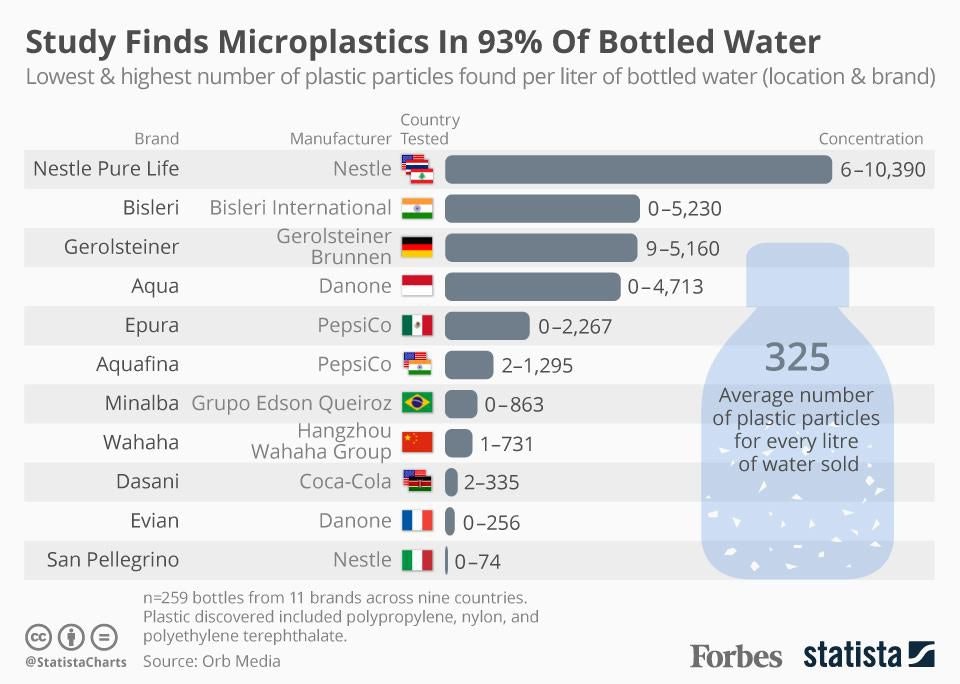
First, the amount of plastic being released into the environment must be drastically reduced. Some policies have already been formulated with this goal in mind, for example, many countries have made it illegal for retailers to give away plastic bags for free, and deposit schemes for plastic bottles are in place in parts of the USA and Europe. However, progress on this front has been slow and piecemeal.
“The research unveils the need for companies to consider their plastic footprint, just as they do for carbon, water and forestry,” said Andrew Russell, Director of the PDP. “By measuring, managing and reporting plastic use and disposal, companies can mitigate the risks, maximize the opportunities, and become more successful and sustainable.”
Time to take the next step
Time fore change
#Swestep – All residues come to use
SOURCE: The Lancet – Planetary Health
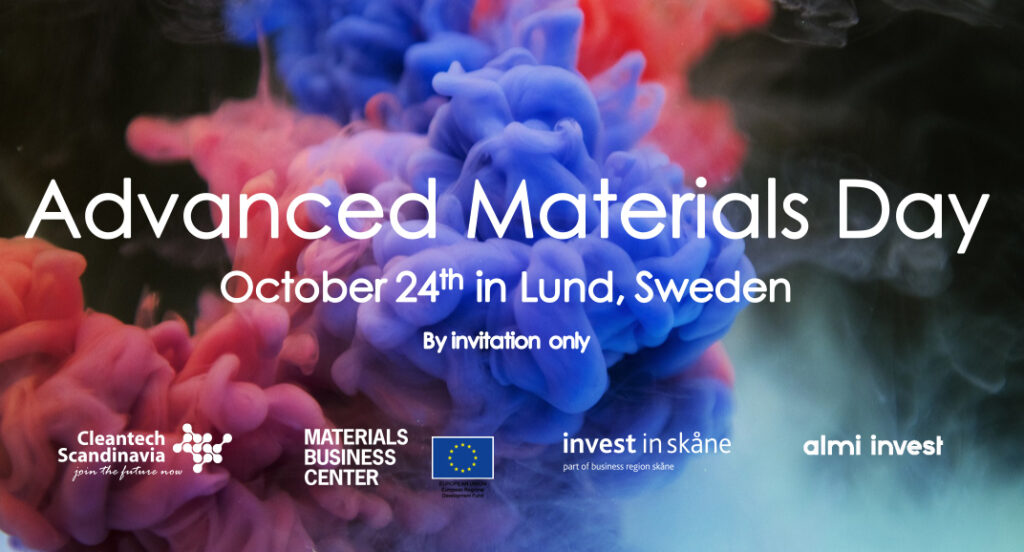
Swestep is invited to talk about our CC (Catalytic Conversion Process) recycling technology on October 24 in Lund.
The Advanced Materials Day will be an event focusing entirely on innovative and sustainable materials for international investors as well as local materials professionals from industry and academia.
Lund is quickly becoming an interesting hub for materials research, especially now that the MAX IV facility offers the highest quality of X-rays available to scientists from academia and industry worldwide. So nowhere better to host an event focusing on materials than there! Around 100 materials experts, researchers, innovators and investors will have the chance to exchange knowledge and contacts for a whole day.
Swestep have great expectations on this day, see this link about the event.
Positive results on initial tests on green aviation fuel
– Opens up for a cost-effective large-scale production
SWESTEP has successfully completed early tests to convert organic waste into non-fossil, green renewable diesel and aviation fuel. The process, which is patented, means that the production cost per liter of green fuel is very attractive.
SWESTEP offers an innovative technology for producing green fuel through its unique CC process (Catalytic Conversion) where organic waste as household waste, incl. plastics, tires and biomass (residues from farming and forestry including wood and demolition wood) are converted into synthetic non-fossil diesel and kerosene (aviation fuel).
“Preliminary study results indicate that the production cost of SWESTEP’s non-fossil fuels is in line with fossil diesel and fossil aviation fuel, which is a major achievement. Our technology for producing non-fossil fuel is more cost-effective and more flexible than the alternatives, which opens up enormous opportunities.” Says Karl-Magnus Mattsson, CEO and founder of SWESTEP,
Climate Kic together with the City of Copenhagen and Kastrup Airport have participated in a study where waste has been tested and fuel is produced, with good results. Further tests and refinement of the process will be carried out in SWESTEP’s planned Facility (R&D + Test + Producton) in Ljungby, Sweden.
Tech.Dr. Anders Östman at “Scandinavian Chemistry Information” has participated in studies where various mixtures of residual products / waste as input material have been tested and notes that the results are promising. The tests performed on a smaller scale show positive results.
SWESTEP’s process is CO2-neutral, renewable and fossil-free and the feedstock can consist of, for example, biomass-based waste. SWESTEP’s manufacturing process takes place at low temperatures and no harmful emissions of, for example, furan or dioxin occur.
“It is a climate-smart, simple and storable solution with good economy. This means new opportunities for local self-sufficiency, while at the same time it is easy and cost-effective to scale up production for those who want to carry out larger industrial production,” says Karl-Magnus Mattsson.
“In the future, aviation fuel produced by SWESTEP technology will undergo formal tests for type approval and certification. We expect an approval because it is of a very high quality. And add that it is non-fossil product, gives us great expectation due to the industries market demand”. He concludes.
Link to original artikel (Dagens Infrastruktur) in swedish
________________________________________________________________________________________________
SWESTEP – “The Next Generation Process Technology for Sustainable Recycling Production” –
SWESTEP develops and sells SWESTEP-Plants. The technology can recycle all types of hydrocarbon-based residues and waste, including plastics, into renewable energy and fuels (for Air-Land-Sea) green raw oil or liquid to refine into performance chemicals, for the petrochemical industry. (New green raw material that can help fossil-dependent industry to “Close the Loop”, plastics, textiles, cosmetics, construction, etc.)
SWESTEP’s technology copies nature’s decomposition process, which converts organic residues and waste into renewable oils, minerals and and performance chemicals. But with the great difference that SWESTEP’s technology takes less than 6 minutes instead of the more than 100 million years it takes for mother earth.
SWESTEP’s technology involves a cost-effective extraction of renewable energy such as fossil-free oil, renewable diesel and green aviation fuel from residual products in our local environment, which partly facilitates waste management and self-sufficiency in energy, and partly leads to significant emission reductions compared to extraction of fossil oil taken up from the ground, Refined with associated emissions and then transported long distances over the soil before it is used (which in total means greater greenhouse gas emission.
SWESTEP has been nominated for – The Nordic Counsel Environmental Prize -, by Climate KIC in Denmark. This is the result of established partnerships with, among others, City of Copenhagen, Kastrup Airport, NISA (Nordic Initiative for Sustainable Aviation), KTH, Lund University and DTU (Technical University of Denmark).
SWESTEP and CLIMATE KIC are now on the OID Tour in India – “The Open Innovation Day”
The Government of India has launched a bold, the Smart Cities Mission Initiative.The program aims to establish frameworks that can be replicated both within and outside the Smart Cities Mission alliance, catalysing the creation of similar smart cities in various regions and parts of the country.
In order to provide concrete solutions to this problem, Climate KIC together with partners tasked by Nordic Innovation to identify innovative solutions though Open Innovation Day (OID).
The Government of India welcomed the concept to utilize “OID” for the purpose of tackling the water and waste challenges of urban sustainability. The Open Innovation Day target the following cities: Mumbai, Panaji, New Delhi, Shimla.
Each of the cities selected, offer specific and unique qualities as an innovation ecosystem. And in the same time each city faces significant environmental challenges – often associated with a metropolis –which again despite having a common theme, vary significantly between settlements.
The Indian Central Government has committed INR 480 billion (equivalent to €6 Billion) in order to finance the mission, a figure that is conditional to equal funding from the state governments.
– “SWESTEP is a waste to energy company among 9 companies that was selected by Climate Kic. We see our Swestep Plants as a natural choice since we offer one solution to two problems, an economically and environmentally viable solution that addresses the waste and water problems at the same time”. Says Karl-Magnus Mattsson, CEO and founder of SWESTEP, and continues. “Our sustainable process technology can effectively recycle all hydrocarbon-based waste, including plastic, into renewable additives and fuels for Air-Land-Sea or a virgin sustainable raw oil to refine into liquids or performance chemicals for the petrochemical industry. Raw materials that can help fossil dependent industries close the loop for future production of textile, cosmetic, medicine and plastic” –.
India is yet to unlock the full growth potential of its urbanisation process, and the existing urban infrastructure is not equipped to accommodate the coming dramatic growth of its cities.
Peter Vangsbo, Nordic Business Developer, EIT Climate Kic, says, – “Given the scope of this project and scale of environmental challenges within each city, not just in terms of magnitude of the problem but also number of people affected. We consider that the challenges require world-class solutions which OID has the potential to deliver through support from the Climate KiC global presence and networks” –.
– “The first days here in India, on the Open Innovation Day Tour, have been fruitful, inspiring and constructive. We look favorably on the broad interest we get, –. Says Karl-Magnus Mattsson and ends with”. When we see the problems and challenges, we feel a responsibility to act now and deliver an economically and environmentally defensible solution that is viable to everyone and everything” –.
Link to the Open Innovation Day (OID) Initiative
SWESTEP EIT – CLIMATE KIC
Karl-Magnus Mattsson – CEO & Founder Peter Vangsbo – Nordic Business Developer
Phone: +46 (0) 763 97 9574 Phone: +45 (0) 123123123123
Mail: kmm@swestep.com Mail: peter.vangsbo@climate-kic.org
SWESTEP was invited to VESTFORBRÆNDING in Copenhagen to talk about plastic waste
SWESTEP see plastic waste as a valuable feedstock that can be processed into sustainable fuels and energy, or also as a chemical raw materials to refine into performing chemicals for the fossil-dependent industry.
CEO Karl Magnus Mattsson’s speech on how SWESTEP’s Catalytic Conversion technology recycles plastic waste in an both economic and environmental viable way led to many questions and interesting dialogues.
VESTFORBRÆNDING is Denmark’s largest waste management company.
Each year VESTFORBRÆNDING handle around 1 million tonnes of waste and the focus is on the resource value of the waste – whether it is materials for recycling or fuel for energy production.
SWESTEP sees this as a interesting and rewarding first step and looks forward to the next step.
Picture above – Some of the participants from the meeting;
Henric Jacobsen – VESTFORBRÆNDING
Nana Winkler – DANSK AVFALDSFORENING
Martin Porsgaard – NISA (Nordic Initiative for Sustainable Aviation)
Anders Kiil – VESTFORBRÆNDING
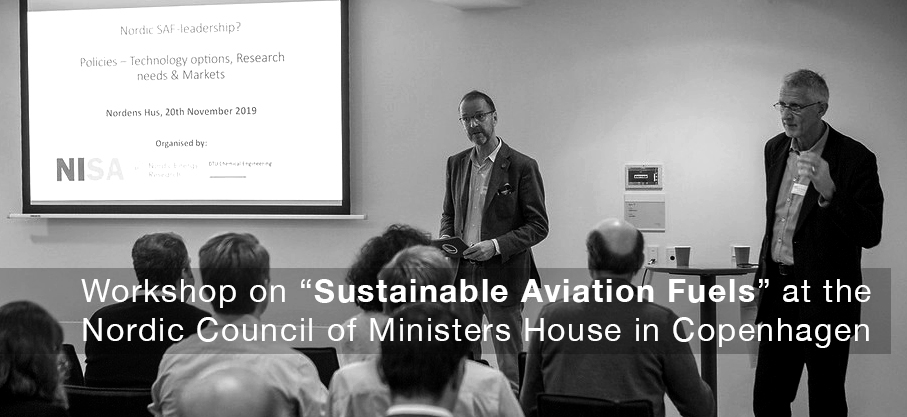
Svend Søyland – NER, Nordic Energy Research and Martin Porsgaard – NISA, Nordic Initiative for Sustainable Aviation
Workshop on “Sustainable Aviation Fuels” at Nordens Hus in Copenhagen.
Aviation stakeholders gathered to discuss the prospects of a sustainable future for jet fuels.
SWESTEP was invited as speaker, at the premises of Nordic Council of Ministers in Copenhagen, together with decision makers, politicians and representatives from SAS, Airbus, Boing, Preem and BP to mention but a few.
The workshop was organized by NISA, Nordic Initiative for Sustainable Aviation, DTU-Chemical and Biochemical Engineering and NER, Nordic Energy Research
There was widespread agreement among the presenters that the time had come to make a serious push forward in adopting sustainable aviation fuels on a large scale. But the stakeholders also acknowledged that there are a number of challenges in this. The price and availability of biofuels remain prohibitive for large-scale adoption in aviation, and there is still a lack of strong political framework in many areas. Ensuring that the supply chain for biofuel production is genuinely sustainable will also need to be addressed. However, despite these challenges, the workshop made clear that there is strong will on the part of aviation stakeholders to adopt biofuels on a much larger scale than exists today.
The subject this day primarily focused on the Nordic Market, and what must be done to make Aviation more sustainable, renewable and viable.
The main points discussed and lively debated also during the breaks were;
• Requirements for clearer regulations and guidelines from decision makers.
• It is necessary with investments in new green fuels, initially as blend in and in the long run highlight new fuels that are completely fossil free.
• A central issue was a price on CO2 emissions and how this could be financed, where most of the participants agreed that this is a necessary way.
• Last but not least (time factor) of today’s aircraft fleet, we must be aware that conversion will take at least 20-25 years.
JP Morgan Friberg presented SWESTEP process technology, highlighting the importance of providing flexibility from the feedstock perspective in order to produce and deliver volumes of renewable fuels that meet the demands and qualities of the market.
SWESTEP ended by inviting relevant stakeholders to a Joint Test Run with the purpose of offering the participants an opportunity to conduct tests, evaluate and see in which way SWESTEP could become a future supplier of renewable fuel products.
For more information – Link to the Nordic Energy Research
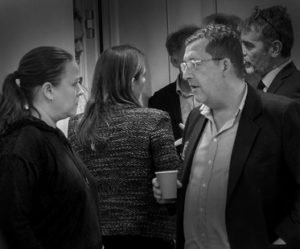
JP Morgan Friberg in dialogue with Maria
Wetterstrand – Appointed by the Swedish
Government to investigate sustainable
biofuels for aviation
Photo by – Christian Ove Carlsson
Giving plastic waste a new life
People all over the world are throwing out large quantities of plastic each year, representing a huge sustainability issue.
Over the past year, the Swedish green tech company has been working closely with EIT Climate-KIC and the City of Copenhagen to carry out a feasibility study on the conversion of plastic waste to new sustainable oil. Since being established in 2012, SWESTEP has been developing an industrial process capable of turning all hydrocarbon-based waste and residues, such as plastic, into renewable fractions. In practical terms, this means that any organic waste stream can be considered as a feedstock, and duly be transformed into a wide range of renewable fuels or useful sustainable liquids and materials to be used again.
In theory, this process could have huge implications for how we deal with plastics, as well as waste management in general, as it could lead to the establishment of major circular economy loops into a city’s ecosystem, provide new sources of renewable energy, and create new revenues and jobs—effectively converting what was previously considered waste into a resource. One key aspect of SWESTEP’s technology is that the feedstock doesn’t require separating prior to processing, meaning mixed waste streams are just as effectively processed as sorted ones. This contrasts wildly with the status quo, in which mixed waste streams require appropriately sorting before the separate elements can be recycled.
Creating industrial inputs from waste plastic for industries that typically require fossil-based fuels or petrochemicals for major parts of their operations doesn’t just represent a welcome remedy to the problem of municipal waste, it also embodies potential to reduce the consumption of fossil-fuels and thus, contributes to climate change mitigation.
Given what was on offer, it’s easy to understand why Copenhagen was interested in a potential collaboration. Per Boesgaard, coordinator of the city’s Climate Plan 2025, had this to say:
‘Waste management, and particularly plastic waste management, has represented a huge problem for the city for a long time. Plastic is now a large part of people’s daily lives, yet it represents a huge environmental problem with regards to both the consequences of its disposal and its carbon footprint.
Our challenge [as the City of Copenhagen] is to manage this problem holistically, which means solving the environmental issues without disrupting the day-to-day of our citizens. Thus, participating in projects such as this and collaborating with pioneering companies like SWESTEP to investigate the potential of their technology is both necessary and exciting for us as a city. We are very pleased with the outcome of this project and look forward to working more with SWESTEP and Climate-KIC in the future.’
In July 2016, the City of Copenhagen, SWESTEP, NISA, Copenhagen Airports, and other partners, took part in “Trash to Cash” an EIT Climate-KIC Pathfinder project aiming to confirm if their “turnkey technology” can make a positive impact to the city’s plastic waste challenge. After testing the process on a batch composed of plastic and biomass, the feasibility study confirmed that both the feedstock, the technology, and the process were viable. Karl-Magnus, CEO of SWESTEP, had this to say about the process:
‘I am delighted with the results because we can now show that SWESTEP can use our process to recycle a mixed organic MSW feedstock that includes plastics. We already are planning for further tests on other special feedstocks to evaluate their economic potential.
The outputs of the process can be used as an environmentally sound substitute for fossil fuels and thus, the municipality waste can end up being recycled into a whole range of things, such as new textiles, new plastics, medicines, renewable diesel, and jet-fuel. I am also proud that we have proved we can make a difference in waste management processes whilst also being an asset to the energy sector. Through our process, we can create new jobs, new industries, and new revenue streams for the city municipalities—all in an environmentally and climate-friendly way.’
Martin Poesgaard, Director of NISA, the Nordic Initiative for Sustainable Aviation is optimistic about the process: ‘With the results of this feasibility study we can see that it is possible to convert the waste plastic residues to a new oil. We [at NISA] find it quite remarkable as it occurs at relatively low temperature and without pressure setting. Our hope is that the oil produced can be further processed into a sustainable jet fuel as if possible, this could represent a major breakthrough in our efforts to make the aviation industry more sustainable.’
SWESTEP will now proceed with additional documentation and analysis of the technology and the end products. Now, the goal is to find industrial partners and investors as well as involvement from the public and the government. SWESTEP is very optimistic about this and sees the solution as an important and low-cost contribution to the circular economy and environmental improvements.

